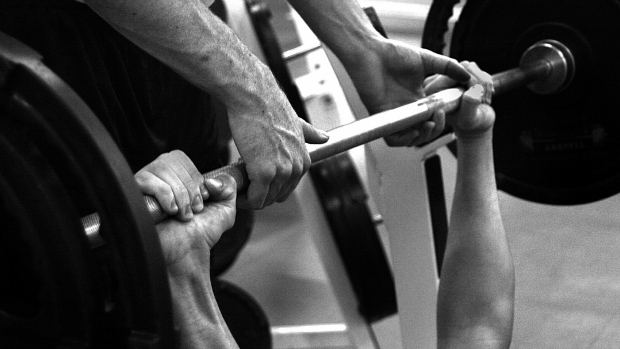I like strength and conditioning because it is one of the few things in life that really rewards effort. When you train you can see your progress quite clearly in the changes in numbers and performance. The process of becoming stronger and fitter is relatively simple in comparison to other things in life. Whenever I hear someone who is struggling to reach a goal I immediately question their approach. In my experience most issues with people failing to hit targets are a result of a fairly simple mistake. Often people are so close to the right process that they actually move backwards when trying to fix their problems. Here are a few issues which I have seen quite commonly in the past years working with a fairly large number of athletes. Some might appear harmless but its astonishing how progress can be slowed by the following things.
Goal Setting
Competitive athletes are usually very driven people. They welcome challenges in most cases. This can result in them setting unrealistic goals which give them the idea of overcoming all odds. They create an underdog situation for themselves. It seems obvious that setting unrealistic goals unwise yet it is an easy thing to fall victim to. Media has exacerbated the issue also. Often progress and comeback stories are heavily exaggerated which leads many athletes into a false sense of what is achievable. Some belief is a good thing but many individuals set themselves up for inevitable failure. An experienced coach is an essential and useful tool to an athlete who may just be basing their goals off false information. If you have a goal, that’s great and it’s a starting point. The process in achieving it will more than likely be quite a measureable one. Discuss it with your coach, as it will become clear on paper how much time is required to realistically achieve targets. A good strength and conditioning coach will be able to formulate a strategy with clear numerical targets throughout the process. If the numbers don’t add up then you may need to reassess the goal to begin with.
Buying Snakeoil
Information is very readily available on the Internet and other media. The information you see is not always good information. Not everyone providing it is in a position to do so. There is a phrase “There is no profit in simplicity” which I heard a top coach say once. People don’t like buying simple programs they already know. They want something new and spectacular. Having worked with professional athletes I can honestly say sometimes I feel underwhelmed by how basic most of their training is. They are incredibly consistent and diligent and that is why they get so far ahead. They don’t look for complicated and advanced programs; they do exactly the opposite. They make life as basic and as simple as possible. This gives them the best chance of success. Inexperienced individuals always want something a bit special or different. These individuals make life difficult for themselves and waste a lot of time. In short don’t buy into outrageous training methods, products or claims. By all means try new things but realize we already know quite a bit about what works and what does not. Consistency is always number one and any program fails without it. There is no magic pill out there but plenty of folk trying to make a quick buck.

Staying true to your discipline
This is a “Grass is Greener situation”. Athletes training for a sport become trained for the tasks associated with that sport. We are getting better with our programming and more professional with our approach to sport. This lets us improve and set new records. Many times I have seen athletes chasing goals that are unrealistic in their sport. The reason they do it is because they see a friend or other athlete capable of achieving something which is not relevant to them. They spend time training toward a goal which will not translate into their own discipline this can be witnessed when strength athletes train like bodybuilders for example. They want single digit body fat or massive muscles which the process in achieving may actually hurt performance in their own sport. Another example might be when disciplines begin to overlap for training purposes and the overlap goes to far. Some athletes may incorporate some Olympic lifting into their training and suddenly find themselves entering competitions and training specifically for weightlifting. Distractions creep into a program like this in many ways. While it might be fun for a change of routine it can lead to an offseason being wasted.
Patience
Often very small issues can put the handbrake on progress. When an athlete is diligent to a program it is quite easy to assess the program, isolate the issue and correct. When an athlete loses patience there is a large temptation to immediately try to change things. This can lead to quite dramatic shifts towards other techniques or even coaches. Often this puts them even farther away from the goal and digs them into a deeper hole. Training programs are often an evolving thing which needs tweaks along the way. It is much easier to tweak a program when you know what you are dealing with. When an athlete starts adding his own things to a program or starts to do his own thing without informing the coach it makes it very hard to make adjustments. I personally like when an athlete gives me feedback and have no issues changing my own approach. We learn from experience and sometimes situations are challenging and need some experimentation to get right. When an athlete is patient and diligent, a coach can serve him a lot better. It is common for an athlete to miss a goal only to tell the coach he changed things that weren’t working. A coach can’t help anymore as it is not possible for them to isolate an issue in the unknown.
In summary the key issue that catches most athletes off is simplicity. A successful athlete makes life simple. Simple things are easier to achieve. The “Marginal gains” theory was popularized at the London Olympics when team GBR structured their approach around one or two percent improvement here and there. Nothing outrageous, just add up the little things. This led to them winning a lot of events and setting a lot of world records. Keep things simple and you will be a lot more effective in making the progress you want.
